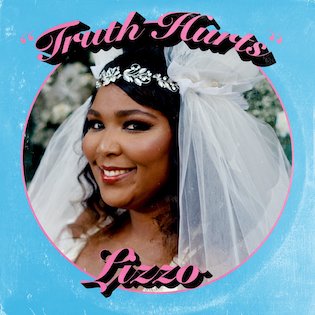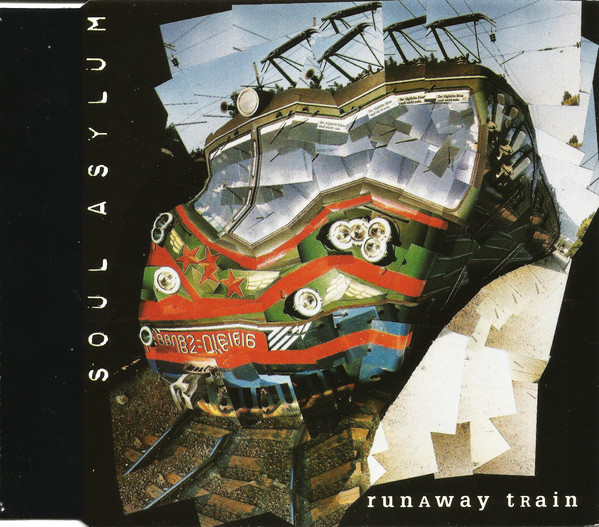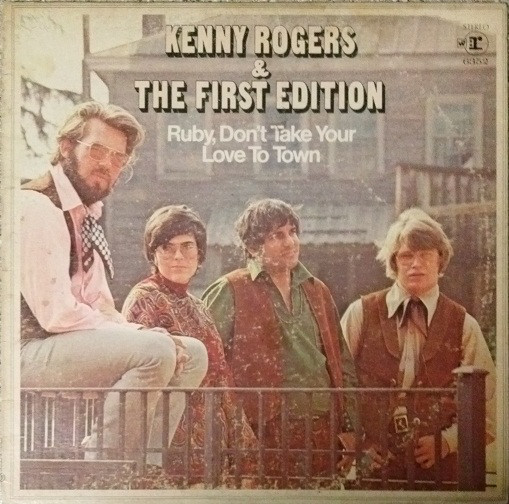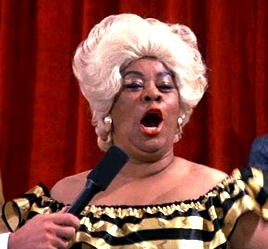
Inspired by the April 27 birthdays of The B-52’s‘ Kate Pierson, Lizzo, Sheena Easton, Badfinger’s Pete Ham, Ann Peebles, The Main Ingredient’s Cuba Gooding Sr., Ace Frehley and Robin S.

Inspired by the April 27 birthdays of The B-52’s‘ Kate Pierson, Lizzo, Sheena Easton, Badfinger’s Pete Ham, Ann Peebles, The Main Ingredient’s Cuba Gooding Sr., Ace Frehley and Robin S.

Inspired by the April 16 birthdays of Dusty Springfield, Soul Asylum’s Dave Pirner, Chance the Rapper, Henry Mancini, Bobby Vinton, Gerry Rafferty, Akon, Midnight Oil’s Peter Garrett, Roy Hamilton, Herbie Mann, Wye Oak’s Jenn Wasner, Gabrielle and Gerardo.

Inspired by the passing of Kenny Rogers, the March 21 birthdays of The Stylistics’ Russell Thompkins Jr., Solomon Burke, The Prodigy’s Maxim, Eddie Money, Mungo Jerry’s Ray Dorsett, Bonzo Dog Doo-Dah Band’s Vivian Stanshall; and World Poetry Day.
Blackboard Jungle hit US theaters on March 25, 1955. The plot concerned the arrival of a new teacher at a violent inner-city school. The producers wanted a theme song that was typical of what a 1955 teenager would listen to. Glenn Ford, who starred in the film alongside Anne Francis and Sidney Poitier, looked through his son’s record collection. In there, the theme song was found.
It was the b-side of a single entitled “Thirteen Women (And the Only Man in Town)” that had been released the prior year. When the song was used under Blackboard Jungle’s opening credits, that flip-side, “(We’re Gonna) Rock Around the Clock,” performed by Bill Haley and His Comets, went to #1 in the US, and is considered to be the first rock and roll song to do so. It became a smash elsewhere in the world, too, becoming the UK’s first million-selling single.
The classic guitar solo on the track was performed by Danny Cedrone, who was not one of Haley’s Comets but a session musician who had worked with the group previously. He got paid $21 for his contribution to the track. Cedrone took a tumble on a stairway and died shortly after the song was recorded, not living to see its success, let alone its iconic status.

Tunes du Jour’s Throwback Thursday playlist this week spotlights the year 1955, kicking off with Bill Haley and His Comets’ “(We’re Gonna) Rock Around the Clock.”
Click here to like Tunes du Jour on Facebook!
Follow me on Twitter: @TunesDuJour
Follow me on Instagram: @GlennSchwartz
So successful was Ruth Brown in the 1950s that her label, Atlantic Records, which started in 1947, was nicknamed The House the Ruth Built.
Her first single for the label, “So Long,” reached #4 on the Rhythm & Blues chart in 1949. Her next hit, “Teardrops from My Eyes,” spent 11 weeks at #1 on that chart. She earned the nickname the Queen of R&B, and over the next ten years scored an additional nineteen r&b top ten singles, including four more number ones. In total she spent thirty-two weeks at #1 on the r&b singles chart. In 1953, Brown crossed over to the pop top 40 with “(Mama) He Treats Your Daughter Mean.”
In the 1960s Brown focused on her family life. She returned to music the following decade, and added acting gigs to her resume. In 1979 she was a regular character on the sitcom Hello, Larry, and she famously portrayed Motormouth Maybelle in the original 1988 movie version of Hairspray, a role which had echoes of her life performing at segregated dances in the sixties. She won the 1989 Tony Award for Best Performance by a Leading Actress in a Musical for her performance in the Broadway show Black and Blue. Her companion album, Blues on Broadway, won Brown the Grammy Award for Best Jazz Performance, Female.

Brown was also influential in the creation of the Rhythm and Blues Foundation, founded in 1988. Per the nonprofit’s mission statement, the Rhythm and Blues Foundation is “dedicated to the historical and cultural preservation of Rhythm & Blues music and recognition of participants in its community by providing services and programs to Rhythm & Blues artists and their fans.”
In 1993, Ruth Brown was inducted into the Rock and Roll Hall of Fame.
She died in 2006 from complications resulting from a heart attack and stroke.
Inspired by Ruth Brown, who was born on January 12*, 1928, today’s playlist presents twenty of the best rhythm and blues recordings from the 1950s.
(*I initially prepared this entry to be posted on January 12. However, once I was about to post it, I read in a few places that the information I had was incorrect, and that Brown’s birth date was January 30, so I saved it for today. Just after I finished re-editing it this afternoon, I looked on Wikipedia and see they (now) list her birthday as January 12, which some other sites confirmed.)
Click here to like Tunes du Jour on Facebook.
Follow me on Twitter: @TunesDuJour
Our playlist on this Throwback Thursday focuses on 1956. Rock and roll was in its infancy and many architects of the new style of music were making their marks. Enjoy this collection of classics.
Click here to like Tunes du Jour on Facebook!
Follow me on Twitter: @TunesDuJour
“If any one person invented soul singing it was Little Willie John.”
– Peter Shapiro, The Rough Guide to Soul and R&B
William Edward John was born on this day in 1937. As a child he sang with his family in a gospel quintet. At age 13 he hooked up with Johnny Otis’ band and for the next few years he performed with various bands, his misbehaving resulting in his getting kicked out.
In 1955, at age 17, he was signed by King Records. Said label head Henry Glover “I heard Little Willie John at 5 o’clock and I was so impressed with him that at 8 o’clock I had musicians in the studio and I recorded him.”
Though he had considerable insecurity about his height, his records were released under the name Little Willie John. His first single, “All Around the World,” was a top five r&b hit in 1955.
The following year John released the original version of “Fever.” While it became a bigger pop hit for Peggy Lee in 1958, John’s version hit #24 on the pop chart and spent five weeks at #1 on r&b chart. Following its success John went on tour as a headliner. His opening act was the up-and-coming James Brown & His Famous Flames.
For a few years the hits kept coming, but in the early sixties, as his records became more pop-oriented and drenched in strings, sales declined. The lack of sales coupled with John’s alcoholism led to his being dropped by King in 1963.
In August 1964, John was arrested for attacking a man with a broken bottle. Two months later, at a house party, Little Willie got into a fight with a 200 lb. six-foot-tall ex-convict named Kevin Roundtree. Roundtree punched John in the face. John got up from the floor and stabbed Roundtree, killing him. Following a trial and appeals, John was sentenced to eight to twenty years for manslaughter. He entered prison in the summer of 1966.
While in prison John fell ill and was confined to a wheelchair. On May 26, 1958, while in jail, he died of a heart attack at age 30.
His singing influenced James Brown and Prince, among others. His recordings have been covered by The Beatles, Fleetwood Mac, Madonna, Jack White and the Allman Brothers. He was referenced by Robbie Robertson on his 1987 song “”Somewhere Down the Crazy River.”
In 1966 Little Willie John was inducted into the Rock and Roll Hall of Fame.
Now that you know a little about the man, check out today’s playlist.
Click here to like Tunes du Jour on Facebook!